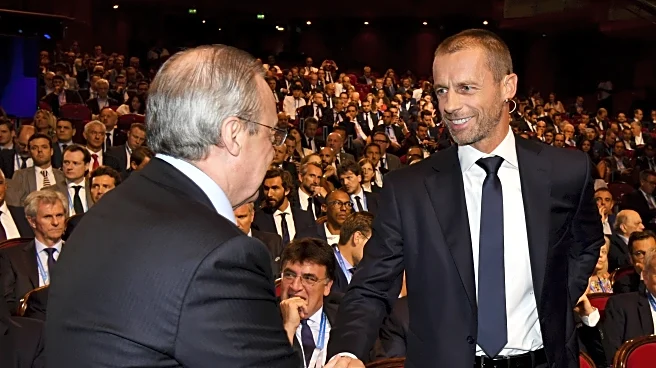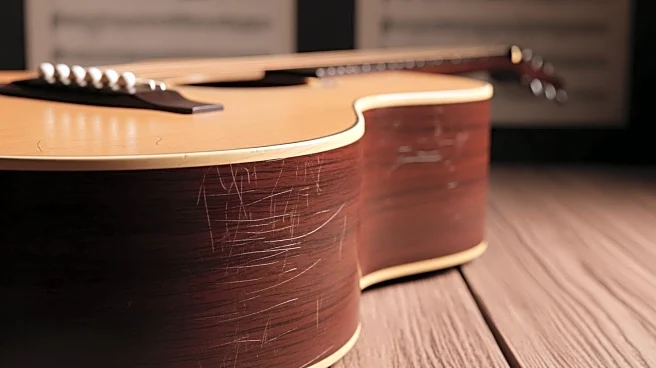The Super League project — dormant on the pitch but very much alive in courtrooms — has taken its most aggressive step yet. A22 Sports Management, the company created to design and promote the Super League,
has formally launched proceedings to claim damages from UEFA. Real Madrid, the project’s most steadfast supporter, is leading the charge.
According to both A22 and Madrid sources, the combined damages claim from Real Madrid and A22 exceeds €4.5 billion, with the vast majority attributed to Madrid’s calculation of the revenue the club believes it lost due to UEFA’s obstruction of the Super League.
The Legal Basis: “UEFA’s Monopoly Violates EU Law”
A22 confirmed that on November 21, 2025, it initiated the mandatory pre-litigation procedures required under Spanish law before filing a full lawsuit. In its statement, the company argued that UEFA continues to abuse its “dominant monopoly position” over cross-border European club competitions — an abuse confirmed, they say, by multiple courts.
The foundation of their claim is the December 2023 ruling from the Court of Justice of the European Union (CJEU), which found that UEFA’s setup did not comply with EU competition law. A Spanish commercial court later applied that ruling in A22’s favor, and UEFA failed to overturn it in an appeal earlier this year.
Despite these legal defeats, A22 argues, UEFA has continued to enforce regulations that contradict the judgments — even introducing new rules in 2024 that A22 claims directly violate the CJEU’s decision.
From A22’s perspective, the consequence is clear: UEFA is now liable for massive damages to clubs, players, and A22 itself.
Madrid and A22: Negotiations Failed, Litigation Begins
A22 also detailed the timeline leading up to this moment — one that included seven months of negotiations with UEFA between March and September of 2025. Those talks came after A22 formally submitted its revised “Unified League” proposal to UEFA in late 2024.
A22 insists it made major concessions to align its idea with UEFA’s framework.
The adapted format would see 36 teams in each of the proposed Star, Gold, and Blue leagues — essentially a reorganized Champions League, Europa League, and Conference League with two seeded groups per tier.
But the core innovation — and the most contentious point — is A22’s desire to launch the Unify streaming platform, a global direct-to-consumer service with a free, ad-supported tier. Florentino Pérez has repeatedly championed the idea, pointing to FIFA’s free Club World Cup broadcasts as evidence that “football should be accessible to everyone.”
With no deal reached, A22 says litigation is now the only option.
Florentino Pérez: “The strength of our case is enormous”
Real Madrid have gradually begun speaking publicly about their intentions. At the club’s General Assembly this week, Florentino Pérez confirmed that Madrid believes it is owed roughly €4.5 billion in damages for the Super League’s stalled implementation.
He also emphasized that the club is not simply fighting for compensation — but for the right to organize the competition itself in the future.
“In 2021 they threatened us with expulsion,” Pérez told members. “Today, after our legal victories, everything is different… We are not here to win a judgment and frame it. We are here to make it real.”
Pérez again criticized UEFA and La Liga leadership, arguing that the current system prioritizes bureaucracy and internal salaries over innovation and accessibility for fans.
The Latest Pressure: A 8-Week Deadline for UEFA
The Athletic also reported that A22’s CEO Bernd Reichart sent an 18-page letter to UEFA general secretary Theodore Theodoridis demanding that UEFA pre-authorize the Unify League within eight weeks.
Reichart insisted the latest iteration of the competition fits squarely within EU law and UEFA’s existing calendar — and accused UEFA of continuing to act illegally by failing to acknowledge that.
“Three courts, including the CJEU, have all ruled consistently,” the letter read. “UEFA’s monopoly must end.”
What A22 Conceded — and What It Still Wants
A22 stressed that it has significantly softened its governance demands. Rather than completely replacing UEFA’s control structure, it now proposes a new board of directors governing the league, made up of:
- A majority of participating clubs
- Player representatives
- UEFA
- European Football Clubs (formerly the ECA)
The board would hold veto power on competition format, revenue distribution, and commercial rights — effectively giving top clubs a direct say in decisions UEFA historically controlled unilaterally.
On revenue, the Unify platform remains central. A22 envisions a global, partially free streaming service generating both advertising and subscription income.
UEFA’s Position? Silence — For Now
As of now, UEFA has not commented on either A22’s legal filing or Madrid’s enormous damages claim. Meanwhile, UEFA’s commercial joint venture with the European Club Association, UC3, has recently made major gains selling the next cycle of Champions League broadcasting rights.









